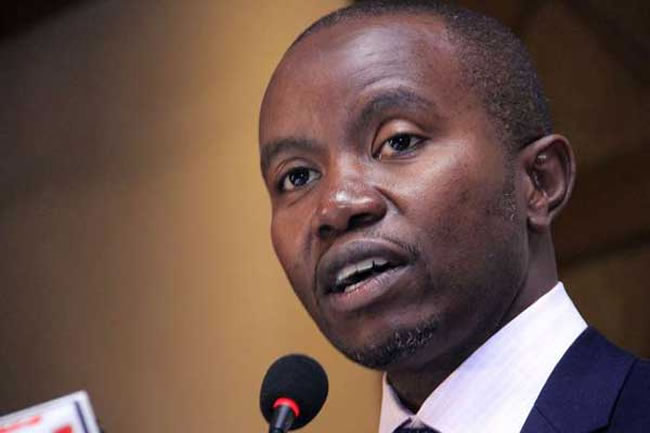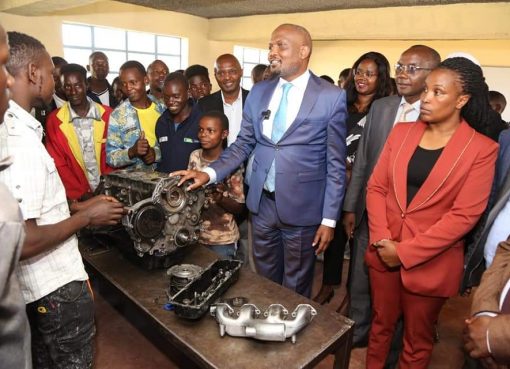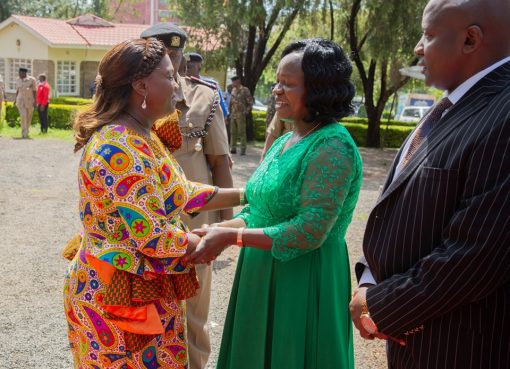The government is heavily investing in health data collection and analysis to inform policymaking as it aims at early detection of diseases and managing pandemics.
Ministry of ICT, Innovation and Youth Affairs Cabinet Secretary (CS) Joe Mucheru said that the Covid-19 pandemic has brought a greater appreciation on the role of technology and innovation in meeting the demands of current challenges.
Mucheru made the remarks in a speech read on his behalf by the Ministry of ICT, Innovation and Youth Affairs Chief Administrative Secretary (CAS) Maureen Mbaka during the official launch of the Center for Epidemiological Modelling and Analysis (CEMA) at the University of Nairobi’s College of Health Sciences at Kenyatta National Hospital.
Mucheru said that during the Covid-19 pandemic, the ICT sector has become a key enabler of the recovery processes being put in place and added that the silver lining has been the acceleration and adoption of tech solutions in almost all sectors of the economy.
“I am further informed that CEMA’s multidisciplinary team uses data from various sources to track disease trends which has been key in understanding the Covid-19 pandemic and informing policy decisions in Kenya,” said Mucheru.
Mucheru said that to achieve the Big4 agenda, technology is indispensable and the Ministry of ICT will play a key role in deploying the technology to accelerate the progress towards the achievement of these agendas.
“The government is laying key infrastructure to enable the digital transformation, and so far, the Konza technopolis horizontal infrastructure is 45 per cent complete and the project is expected to be a model smart city and innovation hub for Kenya and the region upon completion,” said Mucheru.
Mucheru added that the Ministry of Health intends to roll out the Universal Health Coverage (UHC), thus necessitating automation of most of its operation processes and there is an urgent requirement for all hospitals to be provided with connectivity to facilitate online and real-time data management.
“To date connectivity to 18 Level-4 hospitals under UHC has been done countrywide by the Ministry of ICT and deployment of IP telephony is targeted for phase two,” said Mucheru.
Speaking at the event, Education CS Prof. George Magoha said that genuine data is power and knowledge, and managing a public health emergency of such proportions as Covid-19 calls for a lot of sobrieties in making rapid and meaningful decisions.
“We must employ a multidisciplinary approach in tackling the pandemic using relevant data to make effective decisions. Such decisions must be supported by locally relevant data. The data should be generated locally by the scientists,” said Prof. Magoha.
Prof. Magoha further noted that the training arm of CEMA under the University of Nairobi should be keen to mentor the next generation of young researchers through training.
Magoha challenged the University of Nairobi to invest more in the training arm by admitting more learners to have a more robust research unit.
University of Nairobi Vice Chancellor (VC) Prof. Kiama Gitahi lauded the launch of CEMA and the dedicated use of data-driven approaches for the control of infectious diseases, and improvement of health in Kenya and the African continent.
“Data analytics helps decision makers to predict the future with more accuracy, and more importantly we believe that it provides organizations with creative solutions to business problems without errors of human interventions,” said Prof. Gitahi.
Acting Director General of Health Dr. Patrick Amoth cited the need for accurate and focused health data to inform policy interventions.
“We have seen the value of science in managing the pandemic. We will stick with science until we overcome the pandemic,” said Dr. Amoth.
CEMA brings together a multidisciplinary group of epidemiologists, infectious disease specialists, clinicians, mathematicians, statisticians, computer scientists and data scientists from the University of Nairobi and partner institutions, collaborating with public health agencies, governments, and non-governmental bodies.
By Joseph Ng’ang’a




